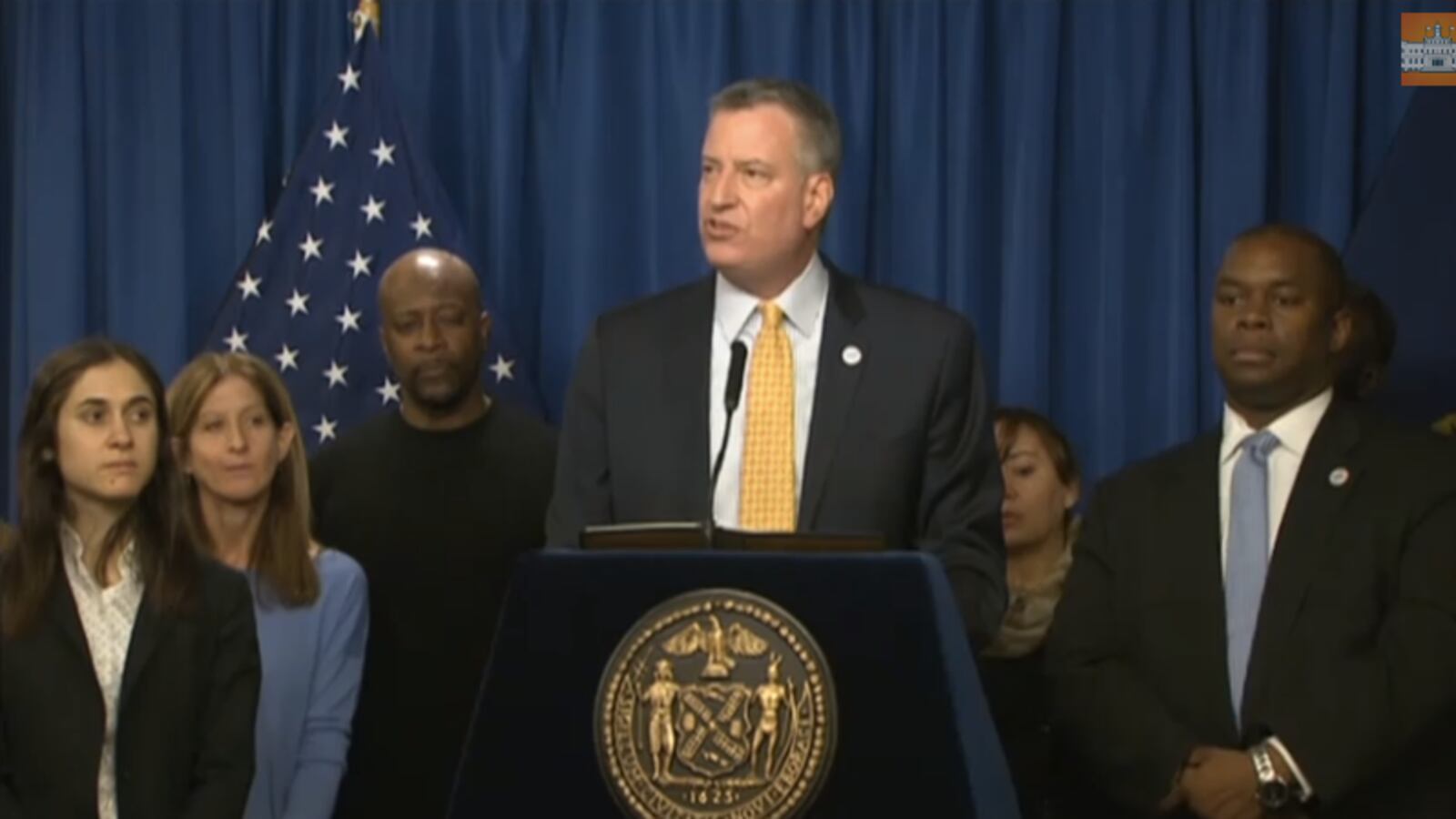Updated 2:46 p.m. — Expanded after-school programming is still a go in New York City, Mayor Bill de Blasio said today, even though the state budget announced over the weekend does not set a dollar figure for the initiative.
And it is not yet clear when new state funds for after-school programming will become available, even as the city solicits bids from nonprofits to operate new programs.
De Blasio had called for $190 million in new investments for middle school after-school programs to go with the $340 million he sought to make pre-kindergarten available to all city children. But while the budget deal that legislators struck this week includes $340 million for pre-K, including $300 million just for New York City, it did not earmark any funds specifically for after-school programs.
That doesn’t mean the state isn’t freeing up new funds that could be used for after-school programming. Indeed, de Blasio said today that he believes there is a “very substantial” commitment from the state to fund after-school programs in the city.
First, the budget bill gives the city a larger-than-expected boost in annual aid — more than $400 million — and allows the city to use state aid for after-school programming.
In addition, the city could soon receive funds from a statewide pool of new education dollars generated through casino revenue. New casinos are expected to generate as much as $94 million for the city annually, although critics of the referendum that allowed the additional gambling have warned that the funds could easily end up being used for other purposes.
Gov. Andrew Cuomo said on Saturday that the new casinos would bolster after-school programs, and de Blasio said today that discussions were underway about how much of the new funds would go to the city’s programs.
The new funding is no guarantee of long-lasting after-school programming. While the pre-K funding must be used for pre-K, the additional state aid and the casino revenue could be used on other education initiatives in the future or by another city administration.
In addition, the new casinos won’t generate revenue until at least next year, leaving this year’s funding for after-school programming up in the air. If the state cannot cover the city’s proposed after-school costs, the city could allocate its own funds in the city budget that will be set by the end of June, according to city officials.
The City Council has helped plug after-school funding gaps during the city budget process in the past. This year, though, the de Blasio administration included after-school funding in its preliminary budget, released last month. That leaves open the question of whether additional city funds could be allocated to after-school programs during the city budget process, even as the de Blasio administration has already asked after-school providers to propose new and expanded programs.
The lack of dedicated after-school funding in the state budget galled advocates who had spent the spring lobbying legislators.
“It is tremendously disappointing that the final state budget fails to commit to a larger investment in these crucial opportunities for all our students across the state, as had initially been proposed by the governor,” said Nora Niedzielski-Eichner, executive director of the New York State Afterschool Network, in a statement Saturday. “We know that high-quality after-school programs can change lives.”
De Blasio sounded the same note today before throwing out the first pitch of the season at Citi Field. Along with the pre-K funding, the state-funded after-school expansion will “turn around our public schools,” he said.
Want the latest in New York City education news? Follow Chalkbeat on Facebook or @ChalkbeatNY on Twitter.


